Tests of the latest model year Bolt EV are underway and it looks like GM won’t deliver on one of the most commonly requested improvements: increasing the car’s DC fast charge rate.
Various updates emerging from social media show the 2020 Chevy Bolt EV topping out at 55kW, the same rate familiar to anyone fast charging a previous model year with the 60kWh battery pack.
Let’s take a look at some of these early tests and what they mean for the 2020 Bolt EV’s overall fast charge time.
Same Bolt Shape, Same Bolt Charge Rate
Last month, we looked at why its greater range might not be enough of an improvement to the 2020 Chevy Bolt EV now that the all-electric field is more crowded. In short, it only hops ahead of its nearest competitors by a few miles and would require additional changes to charge faster than the likes of the Hyundai Kona Electric or Kia Niro EV, which max out around 75kW.
Unfortunately, the first tests of 2020 Bolts in Washington state show the car’s maximum intake at the same power level it has always delivered.
During charge sessions conducted on the high-power Electrify America stations at Three Rivers Mall in Kelso, WA, none showed the 2020 models pushing past the 55kW mark.
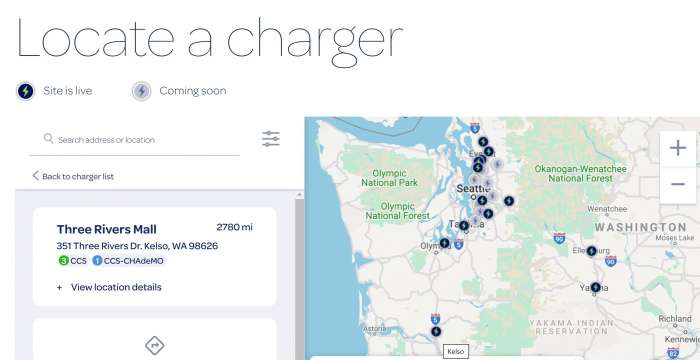
According to Electrify America, all of the CCS connectors at this station are capable of pushing out 150kW or more. That’s as long as the vehicle requests it, of course, which GM seems unwilling to let the current incarnation of the Bolt EV do.
In one charge session shown on Twitter, the 2020 model tested (in a polarizing new Oasis Blue color) goes from 16-50% in 27 minutes, pulling in 24.2kWh in that time frame. This and other threads of conversation from early test drives around the state confirm that the car tops out at 55kW.
As you’ll see from the video below and other DC fast charge sessions documented on my channel, that’s about the same as we’ve seen in our 2017 Chevy Bolt EV on 150+ kW stations in Massachusetts and upstate New York. (Note that most of these videos reflect old pricing and Electrify America's new tiers make it significantly less expensive.)
Watch how a 2017 Chevy Bolt EV charges to 80% on Electrify America in the video below (Please subscribe to Torque News YouTube Channel for daily automotive news and analysis).
This all aligns with GM’s recently updated press line that the Bolt EV adds "100 miles in 30 minutes" on a sufficiently equipped DC fast-charge station.
Measuring in miles added is a moving target, of course, as available range depends heavily on factors like speed, terrain, driving style, and use of the HVAC system. It does translate better than kWh for the general public, however, and 100 miles is up from the 90 that GM previously claimed (we'll see why in the next section). If you’re in the market for the new model year and wondering how far it will go with the new battery chemistry, we put together some seasonal range predictions for the 2020 Chevy Bolt EV.
However, power level is only one factor in how long it takes to fast charge an electric vehicle, so let’s examine another that could yet cut charge times for the 2020 model.
DC Charging Could Still Be (Slightly) Faster in a 2020 Chevy Bolt EV
The one kernel of hope for prospective buyers (and returning lessees of earlier model years) lies in the 2020 model year’s charging profile. Yes, 55kW as the maximum limits how much the car can take advantage of increasingly high-power charge stations. However, if that power level can be maintained for longer than previous model years, the 2020 Chevy Bolt EV will still charge slightly faster than them.
This is where the car’s battery management software and charging profile enter the equation.
Many owners have flagged the Bolt’s early taper points as a reason for elongated fast charge stops. As I explained in previous articles about the car’s abilities, the Bolt EV’s fast charge speed throttles back at around 50-55% state of charge, at which point it only accepts around 43kW, even on a high power charge station capable of delivering much more. Another throttle kicks in when the pack is around three-quarters full, slowing to a speed that the car (rather tellingly) labels “Medium” charging in its Energy menu.
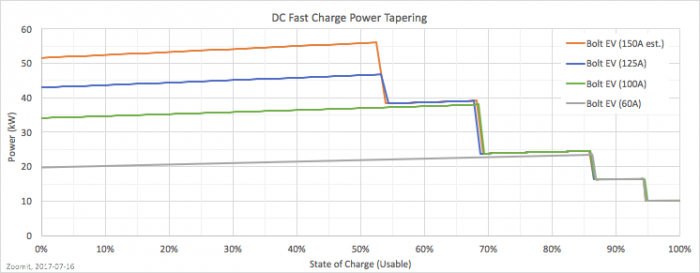
However, in the same test session mentioned earlier in this article, the charge station reports a little over half-an-hour to 80% with the 2020 Bolt already at 50% state of charge. That 30% represents around 20kWh of the new pack’s capacity, which would put the average charge rate in that second section of the 2020 Bolt EV’s at around 40kW. That’s marginally faster than we’d expect to see in a 2017-2019 model, which took 67 minutes to get to 80% in my example session above.
Comparing the two sessions based on what the 2020 Bolt EV reports in the test session, we’d get the following results:
2017 Chevy Bolt EV 16-80% on Electrify America 150+ kW:
Energy Added (actual): 38kWh | Charge Time (actual): 65 minutes
2020 Chevy Bolt EV 16-80% on Electrify America 150+ kW unit:
Energy Added (projected): 43kWh | Charge Time (projected): 62 minutes
Under the current pricing, this means that the 2020 model will take in more energy in a shorter time than previous model years. That also makes it marginally cheaper to charge on any network that charges by the minute. In this example, the effective rates would be 22 cents per kWh for the 2020 Chevy Bolt EV and 26 cents per kWh for the 2017 model. Note that’s before tax and using Electrify America’s Pass+ membership pricing.
If the Bolt EV can maintain a higher charge rate even after 80%, the time could be cut further still, although this isn’t indicated by any of the initial tests and seems unlikely given GM’s generally cautious approach to battery management.
The upshot here is that the 2020 Chevy Bolt EV is no faster to charge in the first half of its battery pack than earlier models, but should shave some a few minutes off the overall charge time to 80%. However, in the grand scheme of things and with models released next year expected to push well past 100kW charging, the newest Bolt remains a laggard at the most powerful DC fast-charge stations. This is a deficiency that will grow all the more glaring as other manufacturers up their game and new models emerge.
If you’re looking for a silver lining, however, this news keeps the Bolt EV comfortably in Electrify America’s lowest pricing tier. Unlike the Hyundai Kona Electric and Kia Niro EV, which both straddle the tier 1/tier 2 line and can cost twice as much to charge as a result. Comparatively, as the scenarios above show, the Bolt EV will remain an inexpensive electric car to fast charge on this growing network.
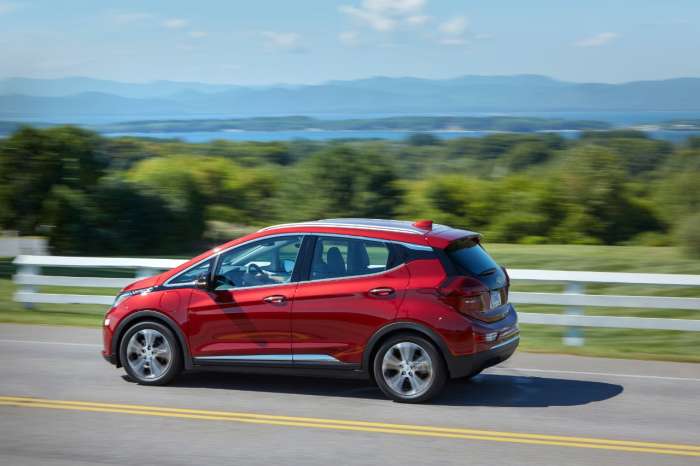
The Bottom Line: 2021 Should Be Better
If you’re looking to buy an affordable long-range EV in the next 12 months, the 2020 Chevy Bolt EV remains one of the most capable all-electric cars on the market. It is likely to be available at a price point $10,000 cheaper than a comparable Tesla Model 3 in EV-friendly markets and still outshines its rivals in some respects.
Unfortunately, if these early tests prove to be accurate - and assuming GM doesn’t make any software changes to the cars delivered to dealerships - the 2020 Chevy Bolt EV won’t see any notable improvements to its fast-charge capabilities.
That puts all eyes on the 2021 Chevy Bolt EV and GM’s plan for a more comprehensive reimagination of its flagship electric vehicle. The mid-cycle refresh should address aesthetic concerns both internally and externally, but it’s the battery pack and charge capability where we’d really like to see the company pushing the envelope.
Do you think GM is up to the task of pushing the next model year way beyond expectations or will it save such leaps for completely new models? Let us know in the comments.
Stay tuned to the Torque News EV column for more on electric vehicles and my next story on how to prepare for winter in a Chevy Bolt EV.
Steve Birkett is an electric vehicle advocate at Plug & Play EV. You can follow him on Twitter at @Plugandplayev, Instagram and Youtube at Plugandplayev Channel to send him EV news tips.
Set Torque News as Preferred Source on Google


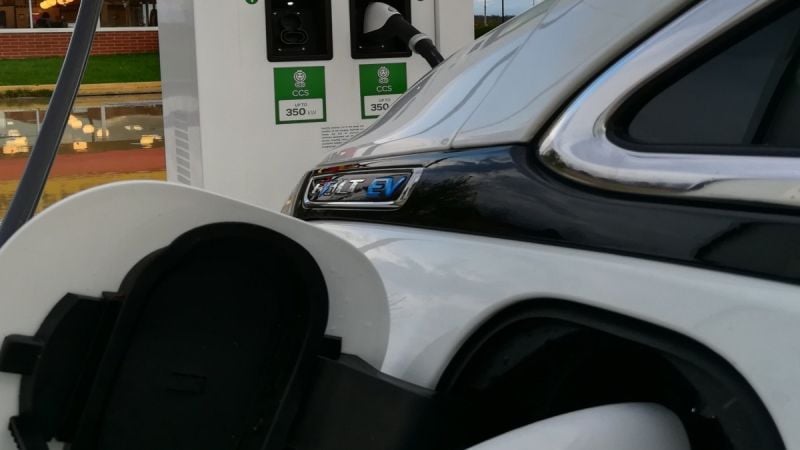






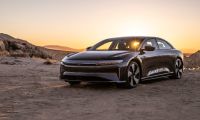

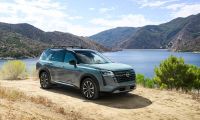
Comments
We have been charging our '19
Permalink
We have been charging our '19 Bolt overnight a couple nights a week on weekends at home. By Monday morning, there are up to 299 miles in the battery.
This has been a perfect fit for my wife, who averages 100 miles a week, virtually all city, and who uses the left paddle to stop, and now in October, uses no AC or heat. I've pulled front fuse 34, which stops the noise maker and the horn beeps. Next will be the DRLs, evidently easy from youtube video.
Sounds like you have an ideal
Permalink
In reply to We have been charging our '19 by Duke Woolworth (not verified)
Sounds like you have an ideal use case for the Bolt EV, not dissimilar to the majority of my family's driving (around town, errands, short distance weekend trips away). In that scenario, the Bolt's range feels huge and the charging issue never really comes up. Glad you're enjoying the car!
Excellent data and article
Permalink
Excellent data and article Steve, even if the initial results are a bit disappointing...
Thank you, Dave. It is
Permalink
In reply to Excellent data and article by Dave R. (not verified)
Thank you, Dave. It is disappointing on the surface, but I do hope subsequent tests find enough improvements to keep the Bolt EV compelling until the 2021 model arrives. We'll know soon enough.
You did not mention 1.5 times
Permalink
In reply to Thank you, Dave. It is by Steve Birkett
You did not mention 1.5 times faster DCFC rates in cold weather come with the 2020 Bolt. BIG IMPROVEMENT. Today was 58 degrees and my 2017 would only charge at 32 kw. Getting 45 or 55 kw in cool weather is a big improvent over prior years.
I have a 2016 Chevy Spark EV
Permalink
In reply to You did not mention 1.5 times by John (not verified)
I have a 2016 Chevy Spark EV that is getting 52kW in 40 degree weather so I doubt it has anything to do with new technology in the Bolt.
New to the Chevy Bolt and
Permalink
New to the Chevy Bolt and this blog.
Question: Does Chevy rollout software updates the same way Tesla does? Any chance that they can update software to increase the capacity the battery requests from the DCFC station?
Hi Roy, thanks for reading
Permalink
Hi Roy, thanks for reading and good question. While the Chevy Bolt does have the ability to receive over the air updates like a Tesla, in reality GM sends them very infrequently.
It seems reasonable to think that they could update the charge profile via a software update so that it charges at its maximum rate for longer, but again this is very unlikely to happen as the current model is to sell you a new car, not upgrade one you've already bought... it's simply not in the legacy automaker mindset (yet!)
With regards to the max 55kW, Chevy's battery engineers have confirmed that is dictated by the car's wiring and couldnt take more. That's presumably why they've altered the charge profile on the 2020 Bolt EV to gradually decrease after 50-55%, as a Tesla does, rather than stepping down the power abruptly. It's not as exciting as a higher max rate, but it does make more of the time you spend fast charging in the upper half of the battery. Thanks, Steve.
Our 2017 Bolt routinely
Permalink
Our 2017 Bolt routinely charges to 260-285 miles. We like the accuracy of it's predicted mileage capability.
It is a bit disappointing the
Permalink
It is a bit disappointing the 2020 Bolt that the max is 55 kW. I recently used DCFC (CCS capable of pushing out 350kW) to check out the rate of charge between 29% and 59% to 80% and the max I got was about 40 kW, not even 55 kW. For the charge from 29% to 80%, it took about one hour and 20 minutes. I am testing the charge rate for a planned trip of 500 miles from the west coast to the Rockies in the summer. I need to estimate the time to drive that distance, including the charge time. C'mon Mary Barra, let your engineers loose and open up the charge throttle.
Info on the 2021 Chevy Bolt
Permalink
Info on the 2021 Chevy Bolt show just upgrades to the seats, some of the interior and infotainment systems, and a change to the front fascia but no change to the DC fast charging because the battery and drive train is the same as the 2020 model. The 2021 model update is just cosmetic changes. That means the 2021 Chevy Bolt will pushing 5 year old tech at that point, far behind their competitors of the Kia Niro and Hyunday Kona. If GM even updated the charging speed to 65 kW, or even as low as 60kW, still well within the 1C rate of the battery, and not taper the charge as soon, this would make the 2021 Bolt far more appealing. However, GM is slow to change, and will experience low sales because of this and then decry the results, saying once again that no one wants to buy electric cars. Why they continue to shoot themselves in the foot is beyond me.
Nathan: a person who just
Permalink
Nathan: a person who just doesn't get it.
55kw to 60kw saves you 1 minute per charge. Not worth the electrons in this message. 55kw to 65kw saves you about 2 minutes per charge. Not worth your email plus mine. Minuscule difference. These small changes would have zero effect on sales. Sort of duping one or two people who don't really get it.
Just saw an Alex on Autos
Permalink
Just saw an Alex on Autos test of the 2020 Bolt and he says the 2021 Bolt will double it's current fast charging to 100 Kw. Any confirmation on that? I've looked elsewhere on the net, and can't find any.